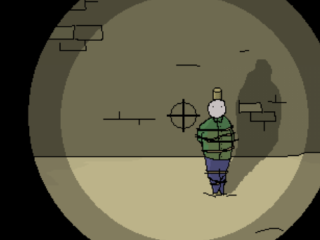I’ve been sorting through my inbox lately in pursuit of the elusive zero. As I’ve done so I’ve come across some disheartening things: business opportunities I missed or let languish, messages from people who played my games whom I never responded to, and personal communications that (with hindsight) I would have handled differently or continued longer.
At the same time, I’ve been playing Assassin’s Creed II (which I put off for a long time due to the awful DRM, now improved). Its sidequests have grown tedious, so I’ve been soldiering through the game just to complete the plot, despite the fact that the story would be a disappointment even if I got it in a 25-cent used-book-store paperback.
So much of my real-life time is taken up with things that don’t leave me with anything lasting, while things that are actually important have languished. What does it mean when I can focus on the important part of a game, but I let life’s sidequests distract me from the central plot?
It means that games are better than life.
Continue reading Games Are Better Than Life
 I got a
I got a 